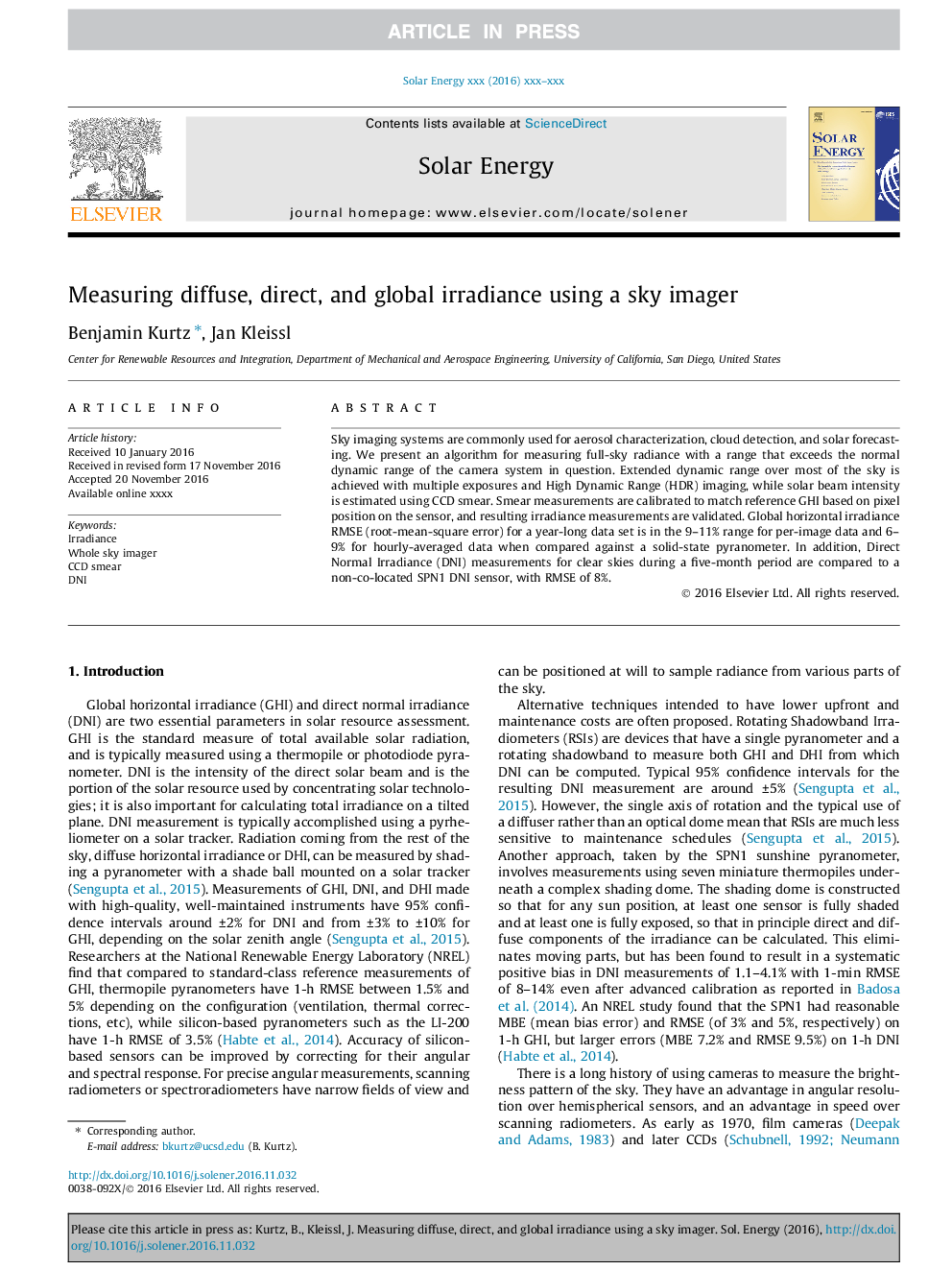| Article ID | Journal | Published Year | Pages | File Type |
|---|---|---|---|---|
| 5451356 | Solar Energy | 2017 | 12 Pages |
Abstract
Sky imaging systems are commonly used for aerosol characterization, cloud detection, and solar forecasting. We present an algorithm for measuring full-sky radiance with a range that exceeds the normal dynamic range of the camera system in question. Extended dynamic range over most of the sky is achieved with multiple exposures and High Dynamic Range (HDR) imaging, while solar beam intensity is estimated using CCD smear. Smear measurements are calibrated to match reference GHI based on pixel position on the sensor, and resulting irradiance measurements are validated. Global horizontal irradiance RMSE (root-mean-square error) for a year-long data set is in the 9-11% range for per-image data and 6-9% for hourly-averaged data when compared against a solid-state pyranometer. In addition, Direct Normal Irradiance (DNI) measurements for clear skies during a five-month period are compared to a non-co-located SPN1 DNI sensor, with RMSE of 8%.
Keywords
Related Topics
Physical Sciences and Engineering
Energy
Renewable Energy, Sustainability and the Environment
Authors
Benjamin Kurtz, Jan Kleissl,
